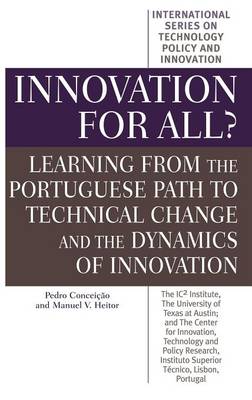International Series on Technology Policy and Innovation
2 total works
The essays in this book examine the role of education and the university in economic development. It is the contention of the contributors that knowledge-ideas and skilled and educated people-are increasingly important for economic development. How to promote inclusive development-the process of development that includes every citizen in any country-has become a wide-ranging puzzle.
After framing the problems associated with globally integrated learning processes from the perspective of science and technology policies, the essayists look at the role of the university in the knowledge economy drawing examples from the United States, Japan, and Portugal. They then review the role of innovation in the industrial policies of a variety of countries, look at systems of knowledge creation and diffusion, and conclude with commentary on the roles of public planning and policy in the achievement of sustainable development. This wide-ranging examination of knowledge and development issues will be of value to scholars, researchers, and policy makers involved with economic growth and development.
At the macroeconomic level innovation increasingly means the ability of institutions to cope with uncertainty and change. This change can be associated with technological advances, but also with modifications to the regulatory framework of an industry, shifts in consumer preferences, emerging demographic trends, or even major alternations of global geopolitics. The changes brought about by these conditions ripple throughout an economy, affecting national institutions and individual citizens alike. Innovation for All? considers the case of Portugal from the perspective of innovation theory, providing new insights on how knowledge is generated and diffused over time and across space. The lessons from Portugal's experience can be applied more broadly to understand the challenges of developing policies that simultaneously promote scientific and technological innovation, societal creativity, and economic growth.

